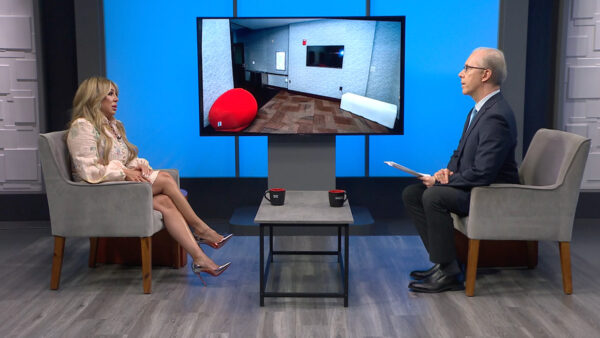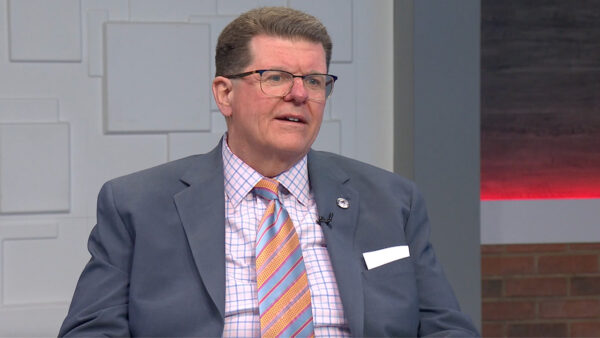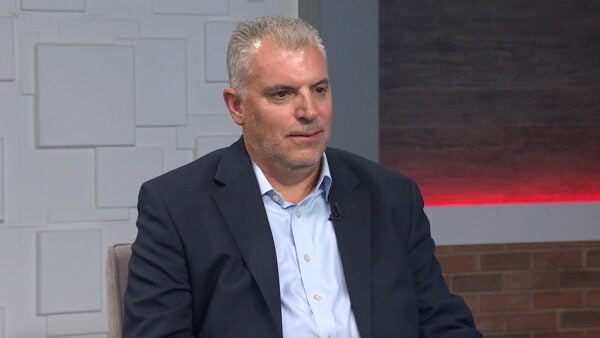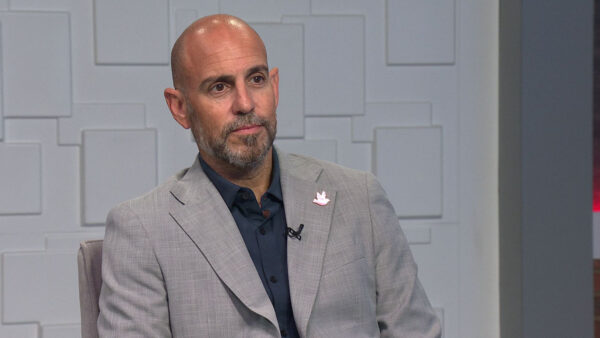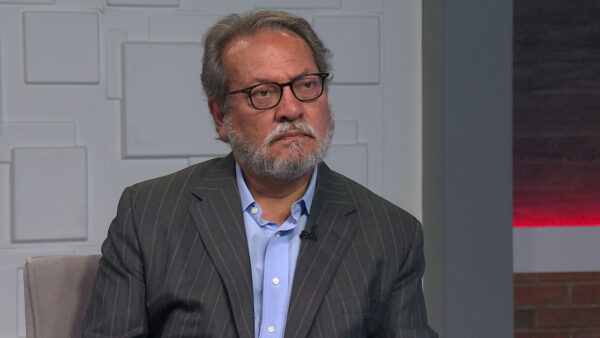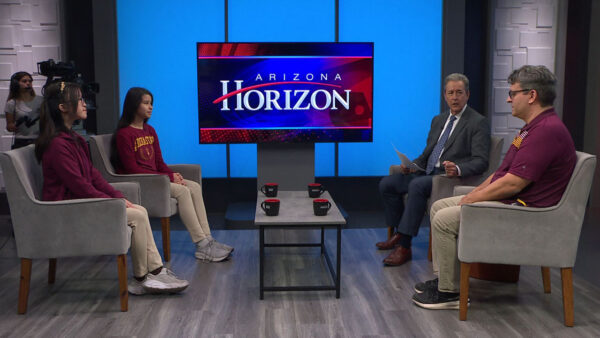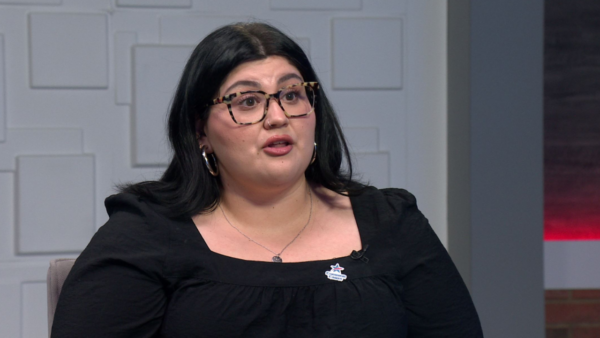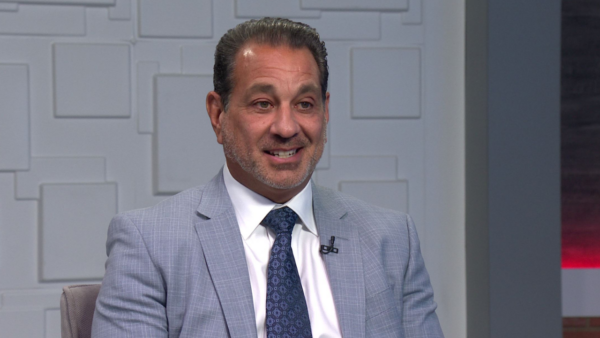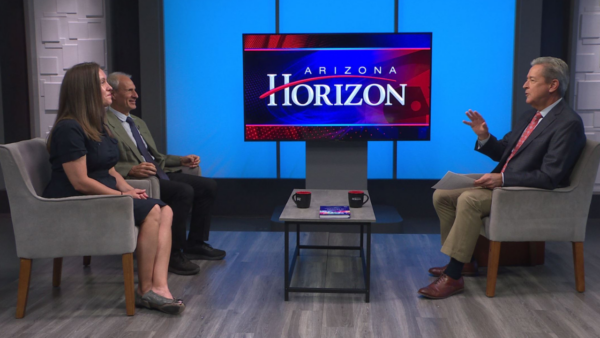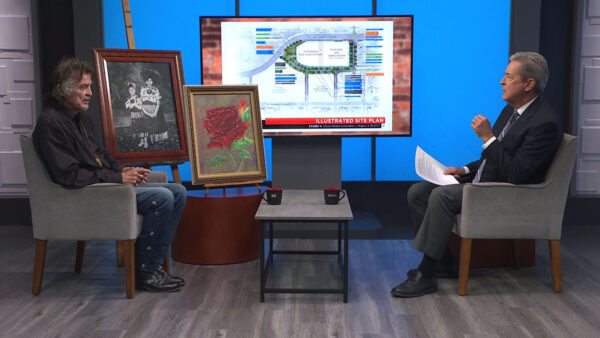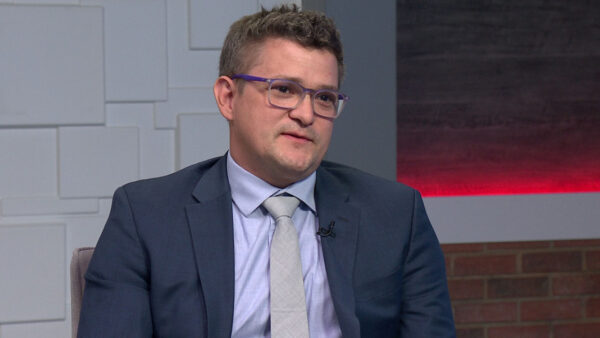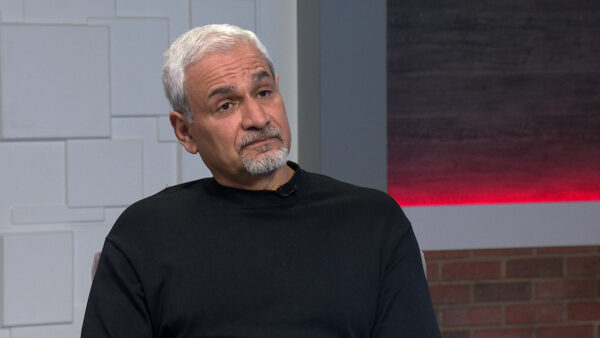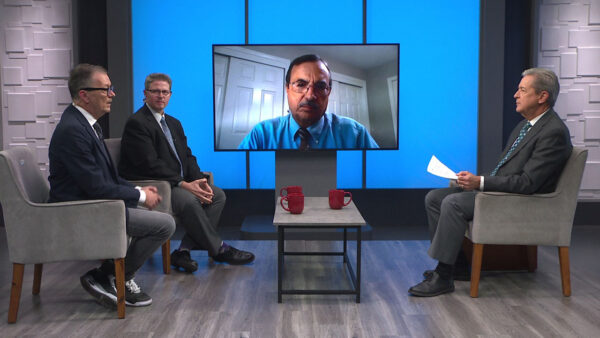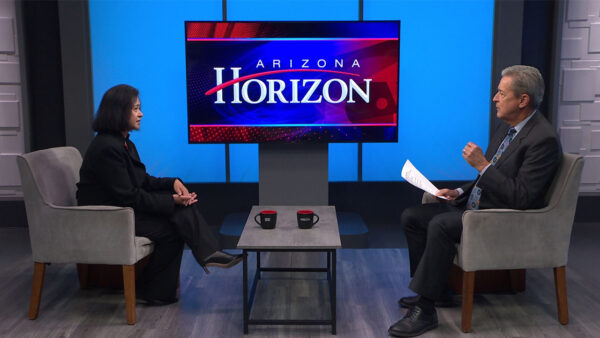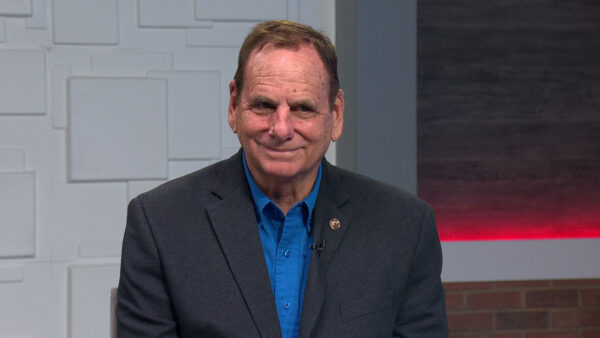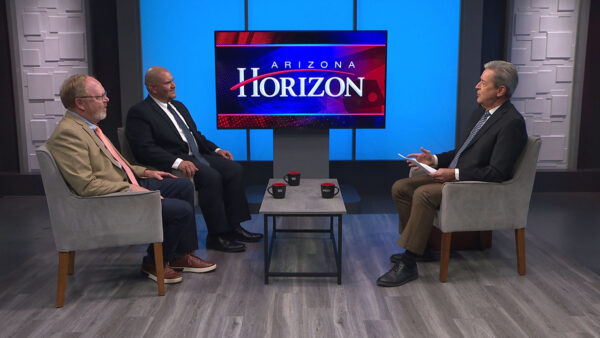The Arizona Board of Regents is the governing board for Arizona’s three universities. Board President Eileen Klein will give a State-of-the-University address Wednesday, November 13, and will appear on Arizona Horizon to talk about the state of Arizona’s three universities.
Ted Simons: The Arizona Board of Regents is the governing board for Arizona's three public universities. Board President Eileen Klein gave a state of the University address today at ASU. She joins us now on "Arizona Horizon." Good to see again.
Eileen Klein: Thank you. Thanks for having me.
Ted Simons: What is the State of Arizona's universities?
Eileen Klein: Generally, quite good. So despite suffering through the downturn like many other entities of the state, we actually have come through stronger. So just like businesses that came through the downturn, I think that we are stronger as a result. And really now well positioned to serve the state going forward.
Ted Simons: How stronger?
Eileen Klein: In a couple of ways. First of all, while it has encourage us to go out, form new partnerships and find new ways of doing business. I think being more connected to our students and thinking about how we can be more efficient getting our students through school, and really being more focused on how we deploy technology, so to what extent we change our operational model? All those things came about largely in response to the downturn that was coupled with a terrific uptick in the number of students who were seeking our services.
Ted Simons: Indeed, that's an interesting dynamic there. Talk about Arizona and the Universities. It seemed like we were going certain direction, hit the rough spot there. How do we compare with the University's nation-wide? What's going on here compared to elsewhere?
Eileen Klein: So, with our peers we do have well. So Arizona's universities, I am proud to report, are really still a terrific bargain overall. Despite concerns about tuition, but also the quality is increasing. I really think it's attributable to the fact that the leadership of the state and the regents, in particular several years back, recognized that we could not afford for multiple reasons to continue to try to replicate the same types universities in every location in the state. So, they began a pursuit to differentiate the universities, and as a result today, we really have a compliment of higher education services in the state that are delivered from three platforms. I think that will serve us well going forward.
Ted Simons: And you mentioned tuition, instate up 70% up since 2008. That's tops in the country and out of state is up 28%, and that's 11th, and the U.S. average is 11%, those are the numbers. A lot of increase and a lot of folks understand why that tuition had to increase. What is that doing getting kids to school and out of school.
Eileen Klein: We don't want them to think that they are priced out of an educational experience. But it is related to the fact that our University system faced some of the largest cuts, among all public universities in the country. Having said that, even though we had to turn more to families during the downturn, particularly a tough time to ask for them for more support, we are still really quite competitive with our peers in terms of our pricing. Importantly, we have increased the amount of aid to families, so that really where before we might have been low tuition state and have low aid, today we have a moderate tuition state and we have more aid available to families than before.
Ted Simons: You mentioned the budget problems and what we have gone through, and reported on here on "Arizona Horizon". Legislative priorities now. What are you seeing out there? You are looking for a budget increase and also looking for bonding. We can get into the particulars there. You've got a legislature as you are well aware and that, that isn't all that free with the money these days, and hasn't been for a while. How are you going to get this money through?
Eileen Klein: To be sure, the legislature is rightly concerned that we want to be sure that the general fund returns to a healthy state. Our point is simply this- we think that universities are a very important part, and have an important role to play in the state's continued recovery. We think that we can be a big part that, in terms of producing a higher educated workforce and in terms of the research investment that we know spurs economic investment and economic development. So our point is simply this- as the state recovers and given the courageous decision that they made to find a support for Medicaid, in particular, we're hoping that as moneys are free up as a result of this condition, that they will recommit to higher education. So that we can help to keep control on the tuition increases, and be able to advance as we know that we need to, to meet the state's needs long-term.
Ted Simons: When talk about the impact at the universities on the state's economy, and what kind examples do show? How do say, look, here's where it's working, here's what it does. And what kind of reaction are you getting?
Eileen Klein: Overall positive. It's been very clear in a number of the most recent job announcements that many of those companies chose to invest because they wanted to be near a University. And not just because they're quality graduates are ready to go to work. But because they want to be next to the centers discovery, so they want to be right there to really capture new ideas and to be able to move those into the marketplace, and commercialize them. Our universities have become more adept at that, and as a result, we're seeing a number of companies who want to be here specifically be close to our resources.
Ted Simons: Critics will say that's a wonderful idea and thing, but the universities are there for an elevated three R's. Get these undergraduates through, get the degrees out there, and let them do their business and their whole business on the side. How do respond to those who say the universities shouldn't be involved in this research? This kind of business development?
Eileen Klein: Well, here's the truth. We know that first of all, two-thirds of our jobs by 2018 are going to require some sort of higher education. And these same companies are the ones who are clamoring for more skilled labor. And not just technical skills, but really people who are really rounded, who can be flexible, creative, adaptive, and really help to drive and grow the business. So, in addition we're not necessarily talking about equity positions or any of the things that in the past have made the legislators concerned about University involvement in economic development. But, we're talking about just sheer numbers in terms of the volume and research capacity, all the technological development, and really the top research talent that we know that we need to spur innovation. That's what companies are really wanting to be near.
Ted Simons: And that's what companies want to be near, is that what lawmakers want to hear?
Eileen Klein: Well, I think that lawmakers are making more of a connection now between the need to advance our educational attainment rates in the state for individual prosperity certainly, but also, to help make this connection to jobs. I think that they are seeing more and more that there is this connection between higher education and all of the investments that are made in research that, in turn, helps to spur economic development.
Ted Simons: It looks like the legislative priorities for the board, 15% budget hike requests there, wish lists here but we can enlist them. Nearly 100 million for the universities, and the state, can the state afford 800, 900 million dollars? We have heard in the past the state can't afford that kind of thing. Can the state now afford that?
Eileen Klein: So, we think that it's time for the state, that they are able to afford to recommit, and that it's time for them to recommit. So the state has set very aggressive goals for what they want to see in terms of the graduates, and research capabilities by 2020. So, we have to start the resource commitment now to be able to make sure that we're ready to achieve those goals. In terms of the return to the state. it's truly one of the best investments that can be made. Lawmakers hear this quite a bit, if you spend money on me, we'll return the investment. But the reality is this, and nothing pays off more for individuals in terms of the long-term ability to earn a living, and be successful, than being able to get a higher education degree. We estimate that if, for instance, we had just the same level of educational attainment as our neighbors state, Colorado- one state over, we would have probably $9 billion to the state's economy. So to us, it's well worth the tradeoff, and also an opportunity to decrease people with dependency on the state for the same resources.
Ted Simons: How do you balance this dynamic, what you are doing, with what's happening K-12? That siphons up to you, and that funnels up to you, if that's not happening, you are not happening.
Eileen Klein: Our universities and regents, in particular today, we just released a data set that really shows exactly this conundrum that we need more students able to go to college, and they need to be prepared to go to college. Sadly, we don't have enough them, and of all the schools we have, not enough get students ready enough. Likewise, we need to make sure that we're doing a good job with all the students that we do get, moving them all the way through to getting a degree. So, really, these things are connected. We need our schools to be able to get more students with higher skills to our doorstep, and then we need to be able to get them through. So we're part of a continuum. The truth is that the state has been very focused on K-12. They may not have been able to invest the dollars that they have wanted, but we created a statewide reform plan for K-12. What we're asking for now is let's make sure that we turn our attention to higher Ed and not leave them behind.
Ted Simons: You came from the Governor's office to the Board of Regents. Talk about the view. The previous job and what you are seeing now on this job.
Eileen Klein: So, I will say that I might have been one several years back to think, can we really afford to do these things? I know that when I left the Governor's office, I specifically left to take on this role because I felt that it was so important to our state's future. I couldn't think of something more important to apply myself to, and to try to rally the state around than improving our higher education system because of the benefits it brings individuals and our overall state. We're going to be the corridor for growth. Not just for the western United States, but probably the entire United States. To get there we need our universities to be strong and successful.
Ted Simons: All right. Very good. Good to have you here.
Eileen Klein: Thank you. Thank you very much.
Eileen Klein:President, Arizona Board of Regents;









